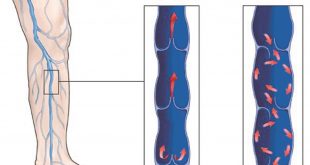By Shannon Willits
Applying Pilates fundamentals to strengthen the mind-body connection
The Weight of Alzheimer’s Disease
The human brain is fascinating. So when the brain begins to decline in function it’s a big deal on the body’s ecosystem. Alzheimer disease is an incurable brain disorder causing the brain to shrink and brain cells to die. Furthermore, Alzheimer is the number one risk factor to develop dementia. The impact of Alzheimer’s disease damages memory, takes a toll on independence and can weigh heavy on the whole family.
“It is a common misconception that we have minimal control over our risk of developing Alzheimer’s disease. However, nearly half of the Alzheimer’s cases could have been prevented or delayed by modifiable factors, including lifestyle changes,” says Sarita Khemani, MD, Clinical Associate Professor of Medicine and Neurosurgery Hospitalist at Stanford University. “Therefore, we should do everything in our power to incorporate healthy lifestyle habits as early as possible.”
Exercise Mind and Body
Exercise is showing great results in cognitive studies. The Alzheimer’s Society analyzed 16 studies between exercise and dementia to conclude regular exercise lowers the risk of developing dementia by 28% and Alzheimer’s disease by 45% (Standford Lifestyle Medicine, 2024). Regular exercise can also slow the progression of Alzheimer’s disease.
“Brain changes associated with Alzheimer’s begin approximately 20 years before symptoms appear,” says Dr. Khemani. “Exercise stands out as one of the most effective strategies for prevention, offering a low-cost, non-pharmacological, and low-risk option accessible to everyone.”
Of course not all exercise methods are equal. Various methods exist for various reasons. Exercise regimens that include mindfulness offer more than physical benefits. This is something Joseph Pilates figured out and started applying to patients during World War I.
Mindful Fundamentals of Contrology
Before it was known as the Pilates Method, Joseph Pilates called his method Contrology. Contrology is a dynamic balance of integrating body, mind and spirit in movement. Mindfulness is the awareness of the present moment. Pilates encourages this practice by relating movement, breath and thoughts to each other so that the mind and body work together.
Some basic principles of Contrology/Pilates included breathing, concentration, control, centering, flow and precision.
Breathing
Drawing consciousness to the breath instantly trainsmental focus. The Pilates breathing techniques are designed to train the mind and body connection. This allows focus inside the body rather than outside surroundings.
Concentration
Concentration is necessary for every breath and movement in Pilates. Practicing concentration provides the opportunity to learn deeper self-feed back. Learning self-feedback is a brilliant tool for the mind and body to grow a stronger connection.
Control
In Pilates, keeping mindfulness throughout each movement allows for optimal control while maintaining alignment. Alignment is a key focus in every movement allowing the nervous system to prioritize posture and reduce the risk of injury.
Centering
Another Joseph Pilates principle, “Centering,” involves connecting the mind and body to the core, or powerhouse, of the body. The sequences and breathing patterns center the mind on intentional and precise movement. We learn to pause, observe and respond accordingly. This increased centering and mindfulness helps to calm the nervous system.
Flow
The controlled grace from one movement to the next allows for the mind and body to flow as one. As the mind and body flow together through movement they can safely play with range of motion and strength that challenge the nervous system. This flow builds the relationship the mind and body have.
Precision
Precision is essential in Pilates to ensure that each movement is performed with intention and alignment. It facilitates your mind and body to think about each movement. Yes, you have to think while performing Pilates. By paying attention to the details and mindfulling executing movements goals can be created and achieved.
Pilates for Cognitive Functioning
Contrology was about finding the dynamic balance of connecting the mind with the body. Eventually Contrology evolved to modern day Pilates.
“Pilates is the complete coordination of the body, mind and spirit” Joseph Pilates
The Pilates Method fuses physical activity with learning dynamic skills. These are two factors that train your brain and slow the rate of mental decline. According to Harvard Health, learning new skills like applying the fundamentals of Pilates improves cognitive functioning.
All of Joseph Pilates’s principles involve mindfulness and co-exist to support the mind-body connection. Pilates not only exercises your body, but your brain too. Proper breathing, body alignment and precise movements are essentials of Pilates. By emphasizing concentration of breathing with movement, the exercise not only builds awareness of the body but also enhances mental clarity.
Pilates classes and training are more accessible than ever. For best cognitive results shoot for 3x a week. All that is left is remembering to start.
Shannon Willits, Master Pilates Educator
Shannon is a Master Pilates Educator with 4 growing local Club Pilates studios. As a career Pilates instructor and functional movement specialist, Shannon has mastered the science and art of her craft. She shares her knowledge by certifying aspiring Pilates instructors. Shannon’s unique approach for developing an apprenticeship has grown into a recent launch for Southwest Florida Pilates Academy. Learn more at (786) 708-7601.
In her spare time Shannon has taken a love for playing Pickleball. Combining her Pilates wisdom with Pickleball training Shannon teaches Pilates for Pickleball. Currently you can find her Pilates for Pickleballs tips with Into Pickleball Online Magazine and pilates-pickleball.com.
CLUB PILATES
www.clubpilates.com
 Southwest Florida's Health and Wellness Magazine Health and Wellness Articles
Southwest Florida's Health and Wellness Magazine Health and Wellness Articles

